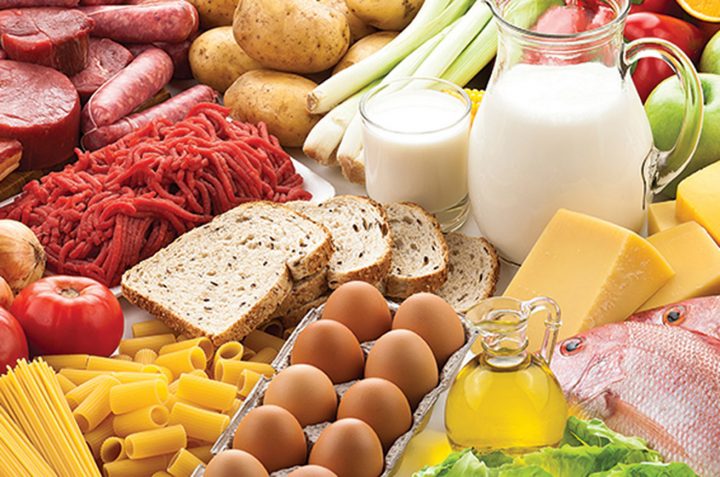15 Oct
Recently there was an editorial in the Global New Light of Myanmar about food safety. The points made in the editorial are both interesting and timely. The facts mentioned are only too true. It says that “Contaminated food may contain harmful bacteria, viruses, parasites or chemical agents causing more than 200 diseases-ranging from diarrohea to cancers”. The editorial goes on to say that “safety of food must always be monitored through effective law enforcement. No excuse should be given to the sellers of unhygienic food, and traders of substandard quality of raw food items”.
Of course, “food safety” should cover the entire food chain from the producer to the processor to the consumer. The goal however is to ensure that the consumer, that is the public, is ultimately the beneficiary of “food safety”.
Unsafe food consumption by the public has definitely been the cause of many chronic diseases like, diabetes, hypertension, kidney diseases, liver diseases, gastro-intestinal diseases and even cancers among the people of Myanmar. The cost of medical care for such diseases far outstrips the cost of some common acute diseases like food poisoning , diarrohea, seasonal flu, etc. The chronic diseases acquired through ingestion of unsafe food for prolonged periods of time, can in the long run add to the cost of medical care both by individual citizens and the State.
Myanmar has laws relating to food safety. Unfortunately enforcement has been rather “weak” in the past due probably to the insufficient number of personnel and the insufficient facilities and equipment for testing food quality, produced locally or imported. Under the existing Food Law as well as the recently enacted Consumer Protection Law it is mandatory for producers and manufacturers to attach labels to food and medicine products, indicating their constituents and expiry date. These provisions regarding food safety help the authorities concerned to check on the quality of food and medical products being sold in the market. Law enforcement of the safety of food and food products must be improved and action taken against the producers, suppliers, and the distributers of food products who fail to abide by the laws, rules and “standards” related to “food safety” in Myanmar.
The editorial also comments that some regional countries emphasize safety and hygiene of their “street foods” to attract tourists. In Myanmar, particularly in the large cities including Yangon, there are many fine and hygienic restaurants and cafes that the tourists may patronize. For tourists who want to sample “local street food”, there are many “street food sellers” that are permitted by the concerned authorities. It’s up to the tourists themselves to decide which street food sellers they would like to choose. For guided tours it’s probably the tour guides who will recommend a particular “location/seller” for any particular type of food. Their choice would likely be the street food sellers in the permitted “street food areas”. In all fairness it must be said that “street food sellers” are patronised by the general public as well, in numbers that far exceed the number of tourists who patronize them. Moreover in this period of Covid-19, in the absence of foreign tourists, it’s the local people who mostly patronize the “street food sellers”.
It is common knowledge that the “street food sellers” are not limited to “fast foods” for consumption in the “shop” or to “take away” as parcels. There are also “street sellers” of raw food items for cooking at home. They line the city streets mostly around the “municipal markets”, housing and business areas and probably the items they sell are cheaper (though not necessarily safer) than the same items sold in the many “municipal markets” or “food markets” of shopping centres . In some narrow streets they even sell their wares in the middle of the street thus blocking traffic. The “people” patronize these “street sellers” in spite of the fact that their compliance of “food safety” requirements is questionable. Enforcing the food safety rules to such street sellers has been a problem all along. It’s time to take action against them if they are selling unsafe food, especially in unhygienic environments, like near waste dumps, sewage drains and wet and soggy areas of the street or on pavements meant for people to walk on.
On the other hand, generally speaking, buying and consuming “safe food”, depends entirely on the “choice” of the consumer. It is up to the consumer to choose the safe food items sold in the more “accountable and hygienic stalls” in the municipal markets instead of buying them from the “street sellers”.
The painful fact is that many people are not food safety conscious or civic minded enough to make the right “choice”. Sometimes it may be a matter of convenience to patronize the nearest “street seller” for items of raw food or vegetables for daily “cooking needs”. From the “rights” point of view we may not be able to question the “consumer’s” choice. Technically however they may be considered as being guilty of “encouraging” the street sellers.
Hence what is needed to ensure “food safety” in the long run is to change the behaviour of the consumers. It will take some time and quite a bit of “persuasion” to make them aware of “food safety” and change their behaviour viz-a-viz patronizing of unhygienic street food sellers. If the people develop the habit of purchasing food items from the municipal markets (provided there are sufficient number of modern such markets in the various township as I had proposed in one of my earlier article) or the “food markets” in the many shopping centres, the “food safety” lacking street side food sellers will eventually disappear, and the people would be none the worse for it.
With charity to all and malice to none.
By Lokethar



